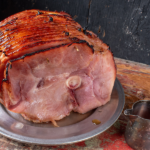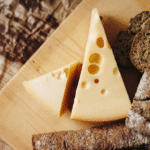The phenomenon of the roblox birthday cake Singapore reveals itself as more than confectionery; it emerges as a meditation on desire, capital, and the strange alchemy by which virtual worlds materialise into sugar and buttercream. In this city-state where efficiency meets aspiration, where global capital flows through gleaming towers whilst children navigate pixelated universes, the birthday cake becomes a site of translation between the digital sublime and the domestic ritual of celebration.
The Political Economy of Pixelated Pleasure
To understand the roblox birthday cake is to examine the curious economics of childhood in late capitalism. Here, in Singapore’s climate-controlled prosperity, families invest significant resources in transforming digital aesthetics into edible form, a practice that speaks to deeper anxieties about authenticity, belonging, and the commodification of play itself.
The cake exists at the intersection of multiple economies: the attention economy that captures children’s focus through screens, the domestic economy of celebration and care, and the creative economy that transforms cultural symbols into purchasable objects. Each fondant block and buttercream pixel represents labour, both the invisible work of game developers and the visible craft of local artisans.
Consider the temporal dimensions: children spend countless hours constructing virtual worlds, whilst bakers spend days constructing edible replicas of those same worlds. Time becomes circular, folding back on itself in an endless loop of creation and consumption.
The Semiotics of Sugar: Decoding Roblox Design Elements
The visual grammar of Roblox, its insistent geometry, its aggressive brightness, and its democratic ugliness pose particular challenges when translated into cake form. The aesthetic refuses traditional notions of beauty, instead embracing a kind of deliberate crudeness that mirrors the platform’s ethos of user-generated content.
Essential elements of this translation include:
- Geometric absolutism that rejects organic curves in favour of digital precision
- Chromatic intensity that mimics screen-based colour saturation
- Modular construction reflecting the platform’s building-block philosophy
- Avatar personalisation transforming generic forms into individual identity markers
- Interactive possibilities that blur boundaries between decoration and play
Each design choice carries ideological weight. The insistence on sharp edges over soft curves mirrors contemporary life’s increasing digitisation. The bright colours speak to an aesthetic formed by LED displays rather than natural light. The modularity reflects a generation raised on customisable, mix-and-match identity construction.
Labour, Craft, and the Gendered Economy of Celebration
Behind every Roblox birthday cake lies predominantly female labour, the bakers, decorators, and event planners who translate children’s digital desires into physical reality. This gendered division of labour reveals itself in the cake’s construction: technical precision demanded by gaming aesthetics meets traditional domestic crafts of baking and decoration.
The emotional labour involved extends beyond mere technical execution. Bakers must decode children’s relationships with digital worlds, translating attachment to virtual spaces into edible experiences that satisfy both child and parent expectations. This requires a particular form of cultural fluency, understanding not just technique but meaning.
“Every Roblox cake tells a story,” explains one prominent Singapore practitioner, whose words inadvertently reveal the narrative burden placed upon confectionery in an age where celebrations must constantly perform authenticity. “We’re not just creating desserts; we’re translating digital memories into something families can share and savour together.”
Singapore as a Laboratory of Late Capitalist Childhood
Singapore’s position as a laboratory of efficiency and prosperity makes it an ideal site for examining how global digital culture intersects with local celebration practices. The city-state’s particular blend of multiculturalism, technological adoption, and economic development creates unique conditions for the Roblox cake phenomenon.
Here, families navigate between preserving traditional celebration practices and acknowledging children’s digitally-mediated experiences. The birthday cake becomes a site of cultural negotiation, where immigrant families might commission cakes featuring avatars dressed in traditional clothing, or where Peranakan design sensibilities meet pixelated aesthetics.
The Singapore market’s sophistication reflects broader patterns of consumption in advanced capitalist societies, where even children’s play becomes subject to professionalisation and market segmentation.
The Anxiety of Authentic Celebration
The rise of gaming-themed celebrations reveals parental anxieties about relevance and connection in an increasingly mediated world. Parents who struggle to understand their children’s digital attachments often overcompensate through elaborate physical manifestations of virtual preferences.
The Roblox birthday cake thus functions as both a bridge and barrier, connecting parents to children’s interests whilst simultaneously commodifying those interests in ways that may diminish their original appeal. The cake promises authenticity whilst delivering performance.
Resistance and Alternatives in Celebration Culture
Some families resist the commercial pressures surrounding themed celebrations, opting instead for simplified approaches that honour children’s interests without requiring significant financial investment. These alternatives might include:
- Collaborative baking where children participate in creating their cake designs
- Mixed-media approaches combining simple cakes with handmade decorations
- Community celebrations that share resources and reduce individual family pressure
- Temporal extensions spreading celebration across multiple smaller moments rather than single elaborate events
These resistances suggest possibilities for celebration practices that acknowledge digital culture without fully surrendering to its commercial logics.
The Future of Desire and Design
As virtual and augmented reality technologies advance, the relationship between digital and physical celebration will likely become even more complex. The Roblox birthday cake may prove to be merely an early experiment in translating immersive digital experiences into shared physical reality.
The cake’s current popularity reflects a particular historical moment when digital and physical worlds remain somewhat distinct. Future celebrations may achieve more seamless integration, or they may reject integration entirely in favour of purely virtual or purely analogue approaches.
What remains constant is the human need for ritual, recognition, and shared joy, needs that persist regardless of technological mediation. The challenge lies in creating celebration practices that honour these needs without surrendering entirely to commercial exploitation.
For families navigating these complex cultural waters, the decision to commission a roblox birthday cake Singapore represents more than an aesthetic choice; it embodies questions about authenticity, connection, and the price of keeping pace with childhood’s accelerating digital transformation.

 The Most Effective Methods For Cooking Potatoes Without Losing Nutrients
The Most Effective Methods For Cooking Potatoes Without Losing Nutrients  5 Food Packaging Trends That Actually Matter
5 Food Packaging Trends That Actually Matter  Solving the Common Problems With Clubs in Ipswich
Solving the Common Problems With Clubs in Ipswich  Pairing the Perfect Drinks with Mexican Appetizers: A Harmony of Flavors
Pairing the Perfect Drinks with Mexican Appetizers: A Harmony of Flavors  Turkey Certificates Explained: What Every Home Cook Should Know
Turkey Certificates Explained: What Every Home Cook Should Know  Why Swiss Cheese Slices Deserve a Place on Your Foodservice Menu
Why Swiss Cheese Slices Deserve a Place on Your Foodservice Menu  Dining with the Skyline: Planning the Perfect Dinner with a View Singapore Experience
Dining with the Skyline: Planning the Perfect Dinner with a View Singapore Experience  Essential Tips for Choosing the Right Knuckle Bandages: The Ultimate Guide
Essential Tips for Choosing the Right Knuckle Bandages: The Ultimate Guide  Rasoi – A Fine Dining Indian Restaurant in Amsterdam with a Menu Built Around Real Flavour
Rasoi – A Fine Dining Indian Restaurant in Amsterdam with a Menu Built Around Real Flavour 